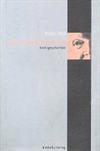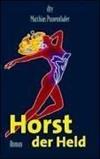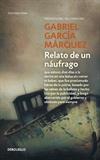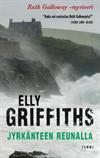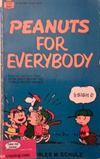
The Atomic Bazaar: The Rise of the Nuclear Poor
1 journaler for this copy...
From Bookmarks Magazine
In this sobering report, William Langewiesche (formerly at The Atlantic Monthly and now at Vanity Fair) asserts that there is no way to prevent Third World countries from obtaining nuclear weapons. We can only "accept the equalities of a maturing world in which many countries have acquired atomic bombs, and some may use them," he claims. Critics praised Langewiesche's concise, clearheaded prose and rigorous investigation techniques. However, they were disappointed that the previously published articles comprising the book had not been more thoroughly reworked into a fluid narrative, which results in an awkward structure, clumsy transitions, and multiple repetitions. A few also questioned his choice to end the book with a chapter on Mark Hibbs, a journalist covering the nuclear industry. Although The Atomic Bazaar is not a perfect book, critics agreed that it is an extremely important one.
In this sobering report, William Langewiesche (formerly at The Atlantic Monthly and now at Vanity Fair) asserts that there is no way to prevent Third World countries from obtaining nuclear weapons. We can only "accept the equalities of a maturing world in which many countries have acquired atomic bombs, and some may use them," he claims. Critics praised Langewiesche's concise, clearheaded prose and rigorous investigation techniques. However, they were disappointed that the previously published articles comprising the book had not been more thoroughly reworked into a fluid narrative, which results in an awkward structure, clumsy transitions, and multiple repetitions. A few also questioned his choice to end the book with a chapter on Mark Hibbs, a journalist covering the nuclear industry. Although The Atomic Bazaar is not a perfect book, critics agreed that it is an extremely important one.
I finished this little book while traveling and gave it to my father-in-law.
-------------------
A fascinating look at the acquisition of nuclear arms by Pakistan, as well as other countries. The book gave enough scientific explanation for me to be able to follow the details. Meanwhile, the personal stories of the scientists, politicians, and reporters were what really pulled this book together for me. Unfortunately, the book seems to be comprised of articles written for other purposes and the author did little to pull them together into a cohesive or flowing narrative. Thus, from one chapter to the next, there was often a shift in perspective or location that was somewhat disjointed.
Perhaps the most interesting chapter analyzed what it would take for a terrorist group to build a nuclear bomb without state sponsorship or state knowledge. Reviewing the conditions of protection of nuclear materials and the scientific requirements, Langewiesche makes clear that it would be possible, though not simple.
-------------------
A fascinating look at the acquisition of nuclear arms by Pakistan, as well as other countries. The book gave enough scientific explanation for me to be able to follow the details. Meanwhile, the personal stories of the scientists, politicians, and reporters were what really pulled this book together for me. Unfortunately, the book seems to be comprised of articles written for other purposes and the author did little to pull them together into a cohesive or flowing narrative. Thus, from one chapter to the next, there was often a shift in perspective or location that was somewhat disjointed.
Perhaps the most interesting chapter analyzed what it would take for a terrorist group to build a nuclear bomb without state sponsorship or state knowledge. Reviewing the conditions of protection of nuclear materials and the scientific requirements, Langewiesche makes clear that it would be possible, though not simple.
 This book is in a Controlled Release!
This book is in a Controlled Release!



